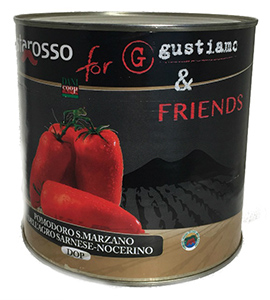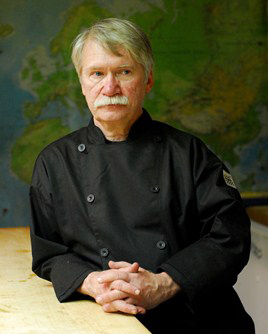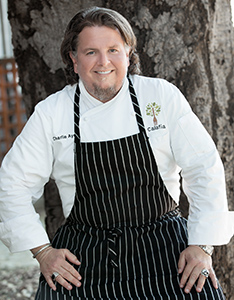Specialty-Food Sales Top $100 Billion for First Time
 The 10 best-selling categories have shifted since just 2013, and today, cheese is still tops, but refrigerated pasta, functional beverages and nut and seed butters show big gains. Why should we care? Because foodservice is an increasingly important sector to that industry, with growth of nearly 31% since 2012.
The 10 best-selling categories have shifted since just 2013, and today, cheese is still tops, but refrigerated pasta, functional beverages and nut and seed butters show big gains. Why should we care? Because foodservice is an increasingly important sector to that industry, with growth of nearly 31% since 2012.
The specialty-food industry is a bright spot in the U.S. economy. In 2014, sales of specialty food topped $100 billion for the first time, with retail and foodservice sales reaching a record $109 billion.
Retail sales of specialty-food sales grew 19% from 2012 to 2014 versus a tepid 2% increase for all food. The industry, fueled by small businesses, now boasts 15 segments that exceed $1 billion in sales, including cheese; coffee; meat, poultry and seafood; chips, pretzels and snacks; candy; and yogurt.
These findings are from a new report from the Specialty Food Association produced in conjunction with research firms Mintel International and SPINS/IRI. The report, “The State of the Specialty Food Industry 2015,” tracks U.S. sales of specialty food through supermarkets, natural-food stores, specialty-food retailers and foodservice venues. Specialty foods are broadly defined for the report as products that have limited distribution and a reputation for high quality.

 Fresh mango, in abundance this summer, delivers flavor, color, texture and nutrition to menus. To celebrate, Chef Allen Susser shares his recipe for a refreshing fruit salad.
Fresh mango, in abundance this summer, delivers flavor, color, texture and nutrition to menus. To celebrate, Chef Allen Susser shares his recipe for a refreshing fruit salad. The third installment in a series on effective professional-development activities performed by students outside of the classroom.
The third installment in a series on effective professional-development activities performed by students outside of the classroom. As instructors, we often think we are not doing much. But, says Chef Weiner, we are actually changing the world with every student.
As instructors, we often think we are not doing much. But, says Chef Weiner, we are actually changing the world with every student. Graduates will not remember many specifics of their educations, and will even realize that so much they thought would be important to their life paths isn’t. But they will remember those who influenced their learning in meaningful ways.
Graduates will not remember many specifics of their educations, and will even realize that so much they thought would be important to their life paths isn’t. But they will remember those who influenced their learning in meaningful ways. Chef Charlie Ayers and other celebrity chefs support Earth Day San Francisco in honor of Earth Month.
Chef Charlie Ayers and other celebrity chefs support Earth Day San Francisco in honor of Earth Month.
 Maple Leaf Farms challenges professional chefs and culinary students to think outside the box when it comes to duck preparation. And to spark their creative juices, Maple Leaf is offering more than $19,000 in prize money in the 2015 Discover Duck Recipe Contest.
Maple Leaf Farms challenges professional chefs and culinary students to think outside the box when it comes to duck preparation. And to spark their creative juices, Maple Leaf is offering more than $19,000 in prize money in the 2015 Discover Duck Recipe Contest. The Culinary Institute of America has appointed Rose S. Wang as the college’s vice president of strategy. Wang joined the college on Feb. 3, 2015, after serving as the chief financial officer of the Mount Sinai School of Medicine’s Center to Advance Palliative Care in New York City since 2013.
The Culinary Institute of America has appointed Rose S. Wang as the college’s vice president of strategy. Wang joined the college on Feb. 3, 2015, after serving as the chief financial officer of the Mount Sinai School of Medicine’s Center to Advance Palliative Care in New York City since 2013. The National Honey Board (NHB) has introduced a colorful, eye-catching, new, information-rich resource, A Guide to Honey Beverages. Serving as a complement to the Sweet Stirrings cocktail guide (2012), the honey beverage handbook features nearly 40 spiral-bound, laminated pages replete with honey tips, tricks and on-trend recipes to help operators enhance their non-alcoholic and alcoholic beverage menus and programs.
The National Honey Board (NHB) has introduced a colorful, eye-catching, new, information-rich resource, A Guide to Honey Beverages. Serving as a complement to the Sweet Stirrings cocktail guide (2012), the honey beverage handbook features nearly 40 spiral-bound, laminated pages replete with honey tips, tricks and on-trend recipes to help operators enhance their non-alcoholic and alcoholic beverage menus and programs.